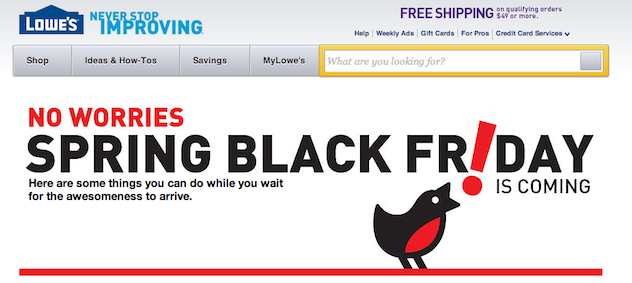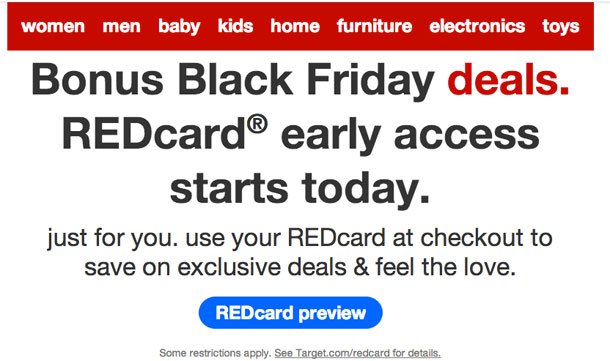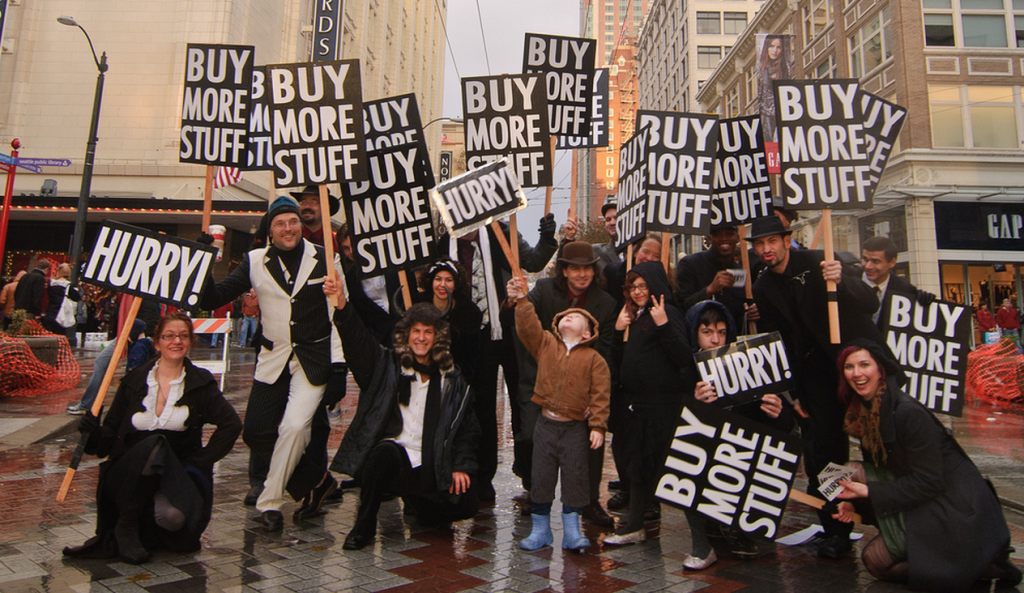Marketers Are Robbing ‘Black Friday’ Of Any Meaning That It Ever Had Image courtesy of (smohundro)
That proposal didn’t catch on in 2012. Not directly. Instead, marketers have decided to pick their own weekends to start blowout sales, or to just declare the entire month “Black November.”
No, really. Here’s an actual e-mail that we received from a deals site sending in a story pitch:

Can something “officially” begin if it doesn’t really exist? I don’t even know. What I do know is that big-box stores are getting into the Franksgiving spirit already. Best Buy is holding a pre-Black Friday sale at a few hundred of their stores tomorrow, and they are calling it exactly that. The deals aren’t doorbuster-quality, but they’re pretty impressive. Update: Our colleagues down the hall at Consumer Reports aren’t impressed with the deals.
The following weekend, Walmart-owned warehouse store Sam’s Club is joining the fun, holding its own pre-Black Friday sale with some nice deals on TVs and other gadgets.
We’re not saying that these are bad sales and that you shouldn’t check them out if you’re in the market for a MacBook or a new TV, but pummeling consumers with the concept of “Black Friday” beginning after Halloween could very well backfire.
The phrase “Black Friday” has become pretty much meaningless at this point, since it’s employed more or less monthly to describe other sales.


This Target mailer went out in July 2013:

There was a dark time when Home Depot was holding monthly Black Fridays.
One goal of spreading out sales is to avoid the early morning danger and mayhem that happens when people are desperate to get their hands on a cheap TV. That’s a nice thought, but probably not why marketers are out to rob America’s favorite soulless shopping frenzy of all meaning.
The only ever meaning that Black Friday really ever had was “CHEAP STUFF!” so this will eventually backfire.
Want more consumer news? Visit our parent organization, Consumer Reports, for the latest on scams, recalls, and other consumer issues.


